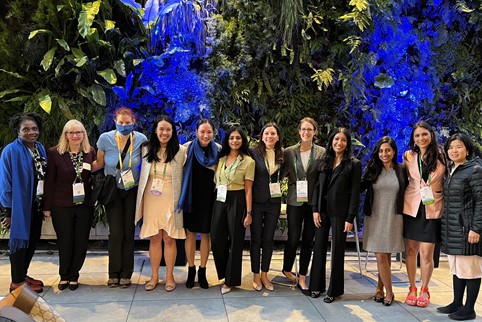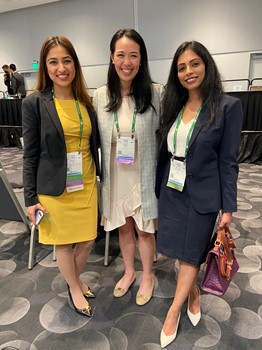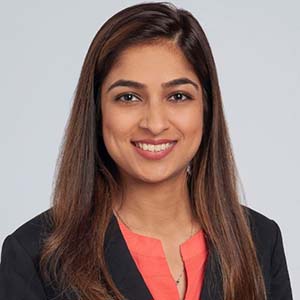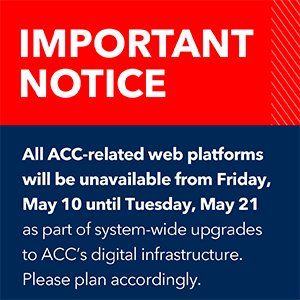Conversations with Women in EP

The dearth of women in EP was highlighted in two studies presented at HRS 2022 showing that only 5% of EP operators of Medicare procedures are women, and that women accounted for just 13%-15% of the pool of applicants to EP.
During the meeting, I discussed some of the issues that deter WIC FITs from pursuing EP with a few established female EPs. A major concern is the safety of working with radiation in the EP lab during pregnancy. Jennifer Wright, MD, from the University of Wisconsin-Madison, said, “The sense of unknown and lack of ‘go-to’ when I had questions about performing procedures while pregnant” was challenging early in her EP career. The lack of guidance about safe childbearing, compounded by a lack of direct contact with female mentors in EP is a big deterrent. Wright said she wished she knew what she learned about radiation exposure earlier on as a cardiology fellow and how to be an advocate for herself and others. She went on to elaborate, “I have had three pregnancies while performing procedures. My first pregnancy was very different from the others in that I had no real guidance on best practices for reducing exposure. My solution was to double lead which was the wrong solution as it led to worsening physical problems in the absence of any reasonable reduction in fluoroscopy exposure. Later, I looked into reducing dependency on fluoroscopy by performing fluoroscopy free ablations and also by using ultrasound guided access for device implantations.”
In a recent interview, Usha Tedrow, MD, MSc, from Brigham & Women’s Hospital, said, “EP is the best kept secret in cardiology.” She believes that EP is great for women interested in a procedural specialty: Most procedures are elective and there is a broad spectrum of patients. However, at a trainee level, there is often a lack of understanding of whether a career in EP would afford an equitable work-life balance. With this in mind, I asked Kamala Tamirisa, MD, FACC, from Texas Cardiac Arrhythmia, if her EP career had afforded her flexibility to build and grow a family and if she had to/was able to modify her career for different phases of life. Her response was strongly in the affirmative and encouraging for trainees: “Absolutely it did! Earlier on I worked fewer days a week to make time to volunteer at school and community which are both close to my heart and soul. The flexibility I asked for and got left me with no regrets. Later on, I started to use my non-clinical time to work on writing and advocacy.” This response highlights the importance of setting priorities and advocating for oneself. Jodie Hurwitz, MD, FACC, from North Texas Heart Center, insisted, “It is OK to schedule things so you can leave to get to an event at school.” On work-life balance, she added, “I do have a family that I love very much. I tried to arrange my day so I could drive the kids to school. I also made sure that I was at almost every school event.”
Part of learning to advocate for oneself comes from strong mentorship and advocacy. Female trainees need to identify both men and women as sponsors and mentors. Hurwitz shared that her strongest mentors in EP were men: “I have always been encouraged by them to pursue whatever I wanted, especially leadership roles. I have also had the privilege to work with some wonderful women, either as co-fellows, or slightly above me who have been extremely supportive.”

During HRS 2022, I attended the Women in EP luncheon where prominent women leaders were celebrating other women and discussing the tough questions of why women in EP were reimbursed less than their male counterparts and how this gap could be closed. It was encouraging to be a part of this tight-knit community. As Tamirisa put it, women mentors have “similar paths with family, kids, schools etc. and double lead/lactation at workplace stories; and can provide guidance with interpersonal communication and confidantes.”
It was also uplifting to meet other FIT WICs aspiring to EP. I met Ingrid Hsiung, MD, from Baylor Scott & White, at the Women in EP Poster Presentations hosted by Abbott. Her positive outlook was refreshing: “Although less than 10 female EPs currently perform VT ablations in the U.S. according to Medicare data, several female fellows’ presentations were on VT ablations. While there are very few female VT ablators now, the future is bright!” As I look forward to this bright future, Hurwitz’s words are a reminder that EP is “an incredibly rewarding, stimulating field and if you love to learn you will continue to learn for your whole career.”
This article was authored by Arooj Khan, MD, chief cardiology fellow at the University of Iowa Hospitals and Clinics and a member of the ACC WIC Section Leadership. Twitter: @AroojKhanMD.
This content was developed independently from the content developed for ACC.org. This content was not reviewed by the American College of Cardiology (ACC) for medical accuracy and the content is provided on an "as is" basis. Inclusion on ACC.org does not constitute a guarantee or endorsement by the ACC and ACC makes no warranty that the content is accurate, complete or error-free. The content is not a substitute for personalized medical advice and is not intended to be used as the sole basis for making individualized medical or health-related decisions. Statements or opinions expressed in this content reflect the views of the authors and do not reflect the official policy of ACC.


